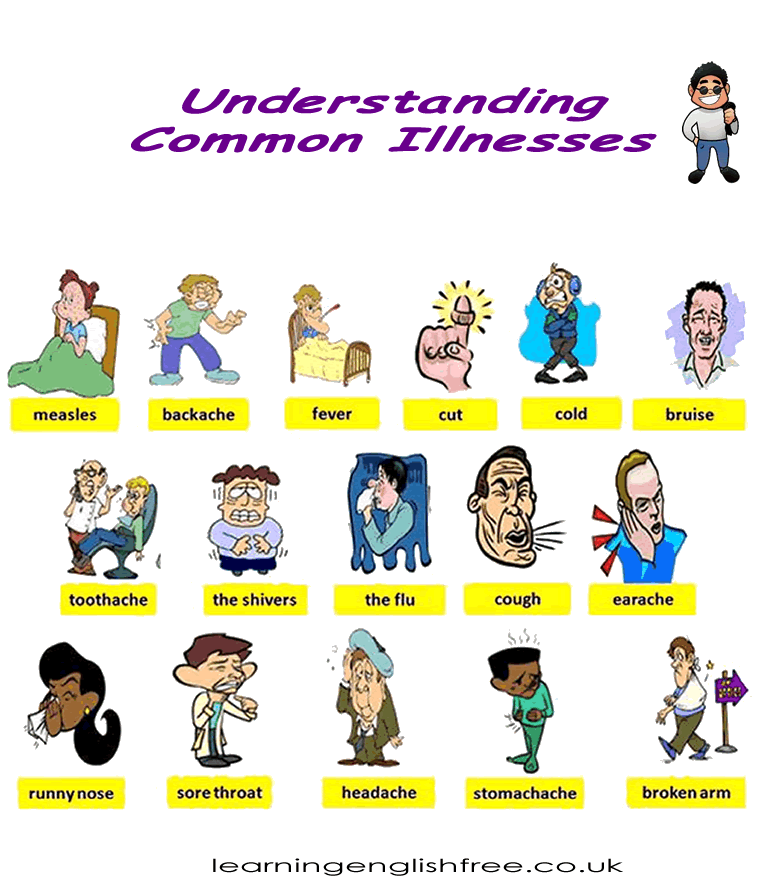
Symptoms and Effects of Common Illnesses: An English Guide
Recognizing and discussing illnesses and their symptoms is essential, especially when seeking medical advice or explaining your health condition. This lesson covers common diseases, their symptoms, and their effects, along with examples of how to use each term in a sentence. This knowledge will enhance your ability to communicate health issues effectively in English.
Examples of how to use in a sentence with their meanings
-
Measles: A viral infection causing fever, cough, and distinctive red rash.
- Example: "The child developed a rash and fever, indicating measles."
-
Backache: Pain or discomfort in the back.
- Example: "After lifting heavy boxes, I have a terrible backache."
-
Fever: An abnormally high body temperature, often due to illness.
- Example: "She's in bed with a fever and needs to rest."
-
Cut: A break or opening in the skin caused by something sharp.
- Example: "He got a cut on his hand while cooking."
-
Cold: A common viral infection causing runny nose, sore throat, and coughing.
- Example: "I caught a cold; I'm sneezing and coughing a lot."
-
Bruise: A dark mark on the skin caused by blood under the surface, usually from an injury.
- Example: "I have a large bruise on my leg after the fall."
-
Toothache: Pain in or around a tooth.
- Example: "I need to see a dentist because of this unbearable toothache."
-
The Shivers: A sensation of cold with shaking, often accompanied by fever.
- Example: "The high fever gave him the shivers."
-
The Flu: Influenza is a viral infection causing fever, body aches, and respiratory symptoms.
- Example: "She's been diagnosed with the flu and has to stay in bed."
-
Cough: A sudden, forceful expulsion of air from the lungs.
- Example: "This persistent cough has been bothering me for days."
-
Earache: Pain in the ear, often caused by an infection.
- Example: "My son is crying due to a severe earache."
-
Runny Nose: A nose with liquid coming out of it, usually due to a cold or allergy.
- Example: "I have a runny nose; I think I'm getting a cold."
-
Sore Throat: Pain, irritation, or itchiness in the throat.
- Example: "I've got a sore throat, and it hurts to swallow."
-
Headache: Pain in the head or upper neck.
- Example: "I can't concentrate because of this nagging headache."
-
Stomachache: Pain in the abdominal area.
- Example: "I shouldn't have eaten so much; now I have a stomachache."
-
Broken Arm: A fracture or crack in one of the bones of the arm.
- Example: "He fell off the ladder and has a broken arm."
Effectively Communicating About Health in English
This lesson gives you the vocabulary and understanding to describe various common illnesses and their symptoms. Articulating these health issues is crucial, especially when seeking medical care or discussing your condition with others.
